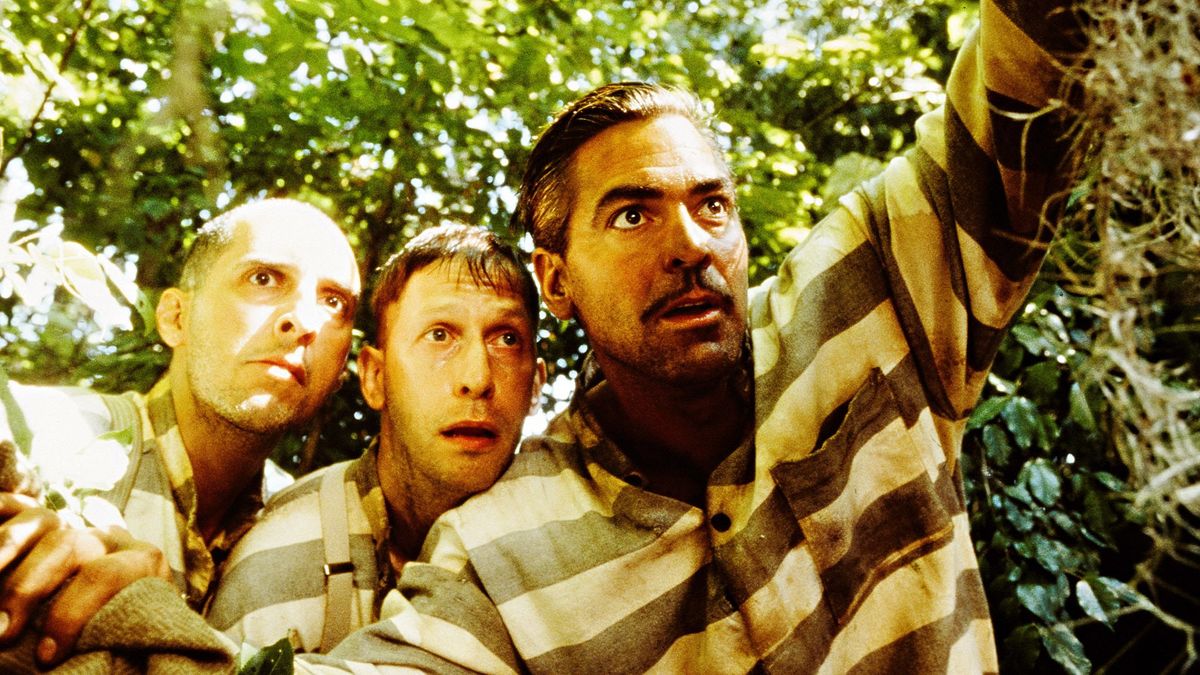Ben Hur (1959)
One of those quintessential "remember when Christian movies could be cool?" movies, from a time when when the people producing them still believed in the general notion that the gravity of the material warrants production on a biblical scale. Opulent period epics with gigantic sets and hundreds of extras, rather than making them about Kirk Cameron telling a housewife from the American midwest about how Jesus will liberate her from her abusive husband if she votes for Trump and opposes a free Palestine or whatever the hell they're about now.
That said, for most of Ben Hur's runtime Jesus is a very understated presence and even when he shows up, the direction treats him like the prophet Muhammed, going out of its way not to show his face. Ben Hur follows a man alive at roughly the same time, judean noble Judah Ben Hur, who starts off being enslaved by the Roman Empire after being blamed for an assassination attempt for refusing to sell out his countrymen, saves and befriends a Roman consul after a naval battle, becomes a man of high status in Rome and returns to Judea to challenge the man who enslaved him and imprisoned his family to a chariot race, the actual depiction of which still stands as some of the coolest shit you're ever gonna see in a movie.
Ben Hur is neither a movie of great historical accuracy (according to an anecdote, when director William Wyler invited a historian to the set and asked her for advice how to make it more accurate her response was: "First of all, you'd have to burn all of it down") nor of particular emotional depth and especially not of believable plotting, but what it has going for it is the sheer scale of it all. As some over the top biblical fanfiction, it depicts a swashbuckling tale of liberation and revenge that grows so audacious it treats the life and death of Jesus Christ as a glorified background event.
Charlton Heston plays the titular character with a gravity that clearly shows that he has zero regard for how silly he looks in traditional Middle Eastern clothes while playing off a series of surprisingly memorable side characters. Stephen Boyd as Messala is a surprisingly charismatic antagonist, despite being absent from most of the movies middle part and Hugh Griffith as an Arab sheikh and Frank Thring as Pontius Pilate do manage to dominate every scene they're in.
For being very long, the movie moves at a very quick pace, up until the final act when it suddenly remembers that it's supposed to be about Jesus and comes to a bit of a halt. It somewhat feels like there's a major missed opportunity to contrast the story of a movie about revenge with the central Christian principle of forgiveness there, which makes it difficult for me to not view the whole christian angle as kind of incidental.
Ben Hur works way better as a pseudo historical spectacle than as a serious commentary on faith but as far as pseudo historical spectacles go, it's extremely impressive. The scale and sheer audacity of the production blow almost everything else out of the water and are, in a sense, even more amazing now than they were back when it was made. It's wasteful and indulgent (then again, not like modern high budget film making isn't) but it's hard not be at least a little sad that I didn't get to live in a time when movies like this could be made.
One of those quintessential "remember when Christian movies could be cool?" movies, from a time when when the people producing them still believed in the general notion that the gravity of the material warrants production on a biblical scale. Opulent period epics with gigantic sets and hundreds of extras, rather than making them about Kirk Cameron telling a housewife from the American midwest about how Jesus will liberate her from her abusive husband if she votes for Trump and opposes a free Palestine or whatever the hell they're about now.
That said, for most of Ben Hur's runtime Jesus is a very understated presence and even when he shows up, the direction treats him like the prophet Muhammed, going out of its way not to show his face. Ben Hur follows a man alive at roughly the same time, judean noble Judah Ben Hur, who starts off being enslaved by the Roman Empire after being blamed for an assassination attempt for refusing to sell out his countrymen, saves and befriends a Roman consul after a naval battle, becomes a man of high status in Rome and returns to Judea to challenge the man who enslaved him and imprisoned his family to a chariot race, the actual depiction of which still stands as some of the coolest shit you're ever gonna see in a movie.
Ben Hur is neither a movie of great historical accuracy (according to an anecdote, when director William Wyler invited a historian to the set and asked her for advice how to make it more accurate her response was: "First of all, you'd have to burn all of it down") nor of particular emotional depth and especially not of believable plotting, but what it has going for it is the sheer scale of it all. As some over the top biblical fanfiction, it depicts a swashbuckling tale of liberation and revenge that grows so audacious it treats the life and death of Jesus Christ as a glorified background event.
Charlton Heston plays the titular character with a gravity that clearly shows that he has zero regard for how silly he looks in traditional Middle Eastern clothes while playing off a series of surprisingly memorable side characters. Stephen Boyd as Messala is a surprisingly charismatic antagonist, despite being absent from most of the movies middle part and Hugh Griffith as an Arab sheikh and Frank Thring as Pontius Pilate do manage to dominate every scene they're in.
For being very long, the movie moves at a very quick pace, up until the final act when it suddenly remembers that it's supposed to be about Jesus and comes to a bit of a halt. It somewhat feels like there's a major missed opportunity to contrast the story of a movie about revenge with the central Christian principle of forgiveness there, which makes it difficult for me to not view the whole christian angle as kind of incidental.
Ben Hur works way better as a pseudo historical spectacle than as a serious commentary on faith but as far as pseudo historical spectacles go, it's extremely impressive. The scale and sheer audacity of the production blow almost everything else out of the water and are, in a sense, even more amazing now than they were back when it was made. It's wasteful and indulgent (then again, not like modern high budget film making isn't) but it's hard not be at least a little sad that I didn't get to live in a time when movies like this could be made.




